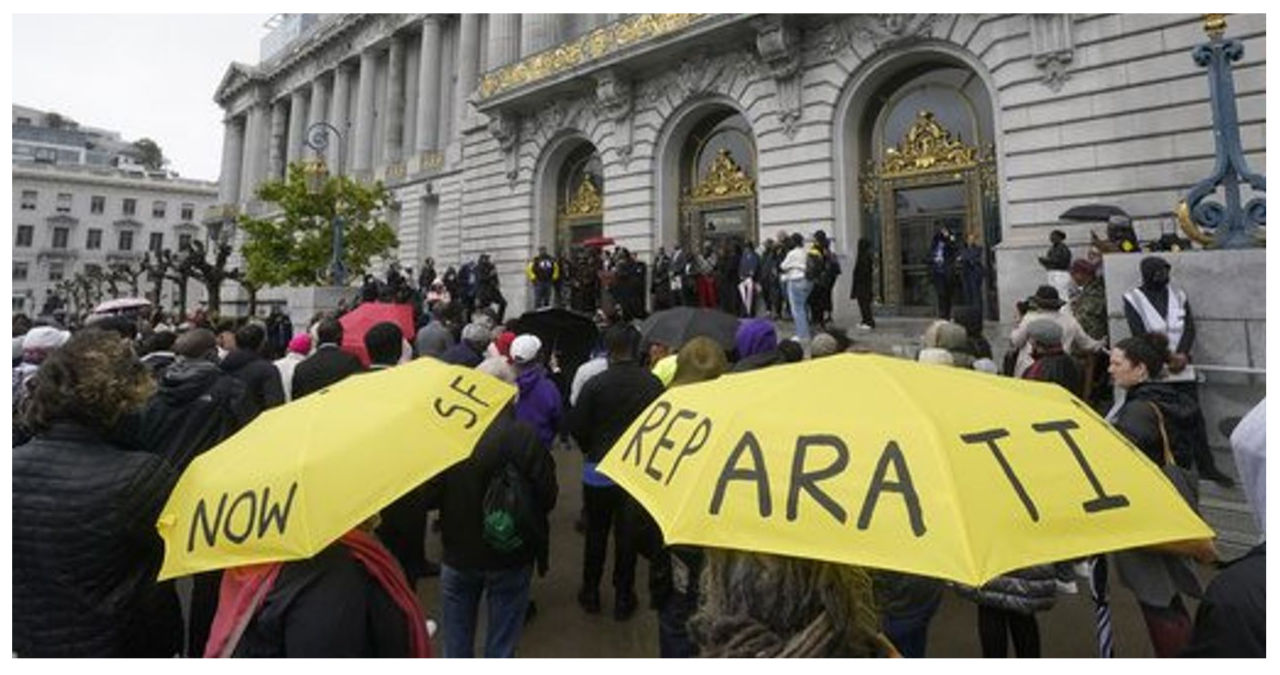Jamiesfeast – The Legislative Black Caucus of California has recently unveiled a series of reparations bills that aim to put into action the recommendations made by the state’s groundbreaking task force on the matter. Among the proposals are measures to potentially provide compensation for properties that were unjustly seized from Black owners. However, it is important to note that these bills do not advocate for widespread direct cash payments to the descendants of enslaved Black individuals.
If the proposals are approved, they would have a significant impact on various aspects. Firstly, there would be an expansion of access to career technical education, allowing more individuals to acquire the necessary skills and knowledge for their chosen career paths. This would open up opportunities for personal and professional growth.
Additionally, the proposals aim to address the issue of violence by funding community-driven solutions. By investing in initiatives that are driven by the local community, it is hoped that effective strategies can be implemented to reduce violence and create safer environments for all.
Furthermore, the proposals seek to support individuals with criminal records by eliminating occupational licensing fees. This would remove barriers for these individuals when seeking employment, enabling them to pursue meaningful careers and contribute to society.
Moreover, the proposals include funding for programs that target specific areas such as increasing life expectancy, improving educational outcomes, and lifting certain groups out of poverty. These initiatives would have a direct impact on the well-being and quality of life of individuals, fostering a more equitable society.
Overall, if these proposals are implemented, they have the potential to bring about positive change and support the advancement of various societal goals.
Opposition is expected for some of the measures, as they would involve amending the state constitution. In fact, a proposal to ban involuntary servitude was voted down by the Democrat-controlled state Senate in 2022. Additionally, Governor Gavin Newsom, who is a Democrat, has been hesitant to impose limitations on solitary confinement for prison inmates.
State Senator Steven Bradford, a Democrat from Gardena, expressed during a press conference on Thursday that the Black caucus’ priority list does not prevent individual lawmakers from proposing further reparations legislation. He emphasized that while the path may be arduous and lengthy, it will undoubtedly be worthwhile.
“This moment is not just significant in the history of California, but also in the history of America,” expressed Bradford, a member of the state task force on reparations consisting of nine individuals.
Advocates who believe that the 14 proposals don’t go far enough are already voicing their criticism.
Chris Lodgson, a member of the Coalition for a Just and Equitable California, played a crucial role in advocating for the establishment of the reparations task force. According to Lodgson, the proposals being put forward do not meet the criteria to be considered genuine reparations.
“He expressed his disappointment, stating that none of the proposals on the list would provide housing for any unhoused descendants. Furthermore, he emphasized that struggling single mothers, who are also descendants, would not receive any assistance. Additionally, he pointed out the lack of repayment for the existing debt.”
California became a free state in 1850, but despite this, it allowed slavery and implemented policies that hindered Black individuals from owning homes and establishing businesses. The state subjected Black communities to intense policing and subjected their neighborhoods to pollution, as highlighted in a groundbreaking report published by the committee.

